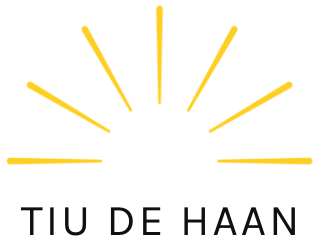AMICA Interview
Translation
Rituals Made To Measure
Celebrating Ourselves
Whether for happy times or sad, there is a ceremony for every occasion, a creative act which can help us to lead a richer life.
Outside the confines of tradition and religion.
So says Tiu, who always knows how to find a way of connecting to the heart.
Why do we need ceremony? Rituals, celebrations for life’s milestones, whether secular or religious - just where do they fit in the story of our lives?
What meaning do the rites of life and death really hold for us?
It’s a question I rarely consider, unless on those rare occasions when I have been struck by melancholy at a christening, or filled with a sense of wonder at a funeral, or when one is smiling as the birthday candles are blown out, and we all clap wildly, as gloriously comical as seals, to show our shared joy. Clap clap!
In general, though, it never even really occurred to me just to stop and reflect upon such things, constantly caught up in the relentless momentum of day to day life.
Then one night, in London, quite by chance, I found myself sitting opposite a woman at a dinner party.
“My name is Tiu,” she says. “I’m 38, I come from X. Where are you from?”
We swap stories, share how we both came to be in this great city, how we have each ended up at this particular dinner. We eat and we drink. Tiu tells me that she is a ‘celebrant’. I have no idea what a celebrant is, I tell her.
She smiles and explains: whether it’s to celebrate love or to honour a loss, to name a baby (religious or secular), to mark a turning point in life, to express grief, to honour an ending, or to simply to celebrate a moment, we may want some kind of ceremony, and we can create our own, create new rituals to serve the purpose.
That’s what I do, she says. (She’s here: http://tiudehaan.com ).
Ritual is an artwork made out of a moment and it tells the story of who we are: it is an act of creation. It makes us stop and gives us pause, it puts a frame around an experience, it weaves a tale, it interrupts the humdrum, in order to throw things into sharp relief and really see them clearly.
In order to do this, we need the framework of a ceremony, one that has a clear beginning and an equally clear end.
But I’m not christened, I say. I’m not married and I’ve never even christened my son. And there and then I add, that at times, I feel like I missed out on the celebrations. But maybe I’m just not suited to such things, for paradoxical reasons. Too emotional to handle them, yet also too self-deprecating to embrace them.
Any anyway, the rituals that I have experienced, even when I have cried with happiness at another’s love, have nearly always been wrought from a language I don’t understand, with crosses traced in the air or wine drunk from golden goblets, none of which give me either peace nor joy.
Tiu says that when the need for ceremony comes from within, we primarily do it for ourselves, but also in order to share it, because from the moment we are born until the moment we die, all that we have are moments - and moments are there to be celebrated together.
And so, I ask her, what have you celebrated?
Tiu tells me of how she created a wedding ceremony with a couple who came from two different religious backgrounds, a celebration which embraced both faiths and which was the synthesis of everything they held to be important, and how their love was sung to the sky. And how in a wedding ceremony that took place under the canopy of a 500 year old tree, each family member swapped tokens of love with their counterpart, grandparents with grandparents, parents with parents, all the way down through the generations, exchanging ribbons that they then tied to a young sapling, which was later planted by them all.
She tells me that she married a single woman to herself, and that she is helping another woman – who is terminally ill – to plan her own funeral.
She tells me of a child who had lost his father, and so his mother organized a ceremony for him, to introduce the seven men who would be role models in his life, his guides, his godfathers. Each of the seven men, on that day, which was fathers’ day, made commitments to both mother and son, promises such as a ticket to a football match one day, or going for a pint together when he came of age.
She tells me that an eye hospital has asked her to create a ceremony for the families of those that have died and donated their corneas to honour their legacy with those that can now see as a result. There is no precedent for a ceremony such as this, because this is a truly 21st century set of circumstances, something that could only be possible now - an utterly contemporary ceremony, the significance of which is profound.
What set you off on this path, I asked her.
It was thanks to my mother. She was a natural celebrator of life. Not only the big moments, like birthdays and Christmases, but she could turn even the most mundane event into a cause for celebration - even when cleaning the floors, she would strap scrubbing brushes to her feet and skate around the kitchen; she would make up stories; she savoured each and every moment. She celebrated – always.
She taught me how to stop and appreciate beauty. She died unexpectedly in front of me when I was just 18. My heart turned to ice. And I remained frozen for years. What helped me to thaw were rituals. Even tiny ones. Buying myself flowers, preparing a delicious dinner and creating a space just for me and her.
The same thing happened to me when a very dear friend of mine died – I immediately came up with the idea of a ritual, where I made a little paper boat, which I sent out to sea one night on a candlelit beach.
It gradually evolved from rituals for myself to the creation of rituals for others. That was when ceremony itself became a work of art, made out of a moment.
In other cultures there are many rites which honour the major transitions of life, some of which we do not even observe, from stepping into adulthood to becoming a grandparent, from the anniversary of a death to the changing of the seasons.
All of this helps us to acknowledge what is gone, while embracing the coming of the new.
I believe that we need this, says Tiu. And we need to see it before us and to say it aloud.
The creation of a ceremony becomes part of a person’s history and of their identity. It speaks to their values, beliefs, battles, defeats and victories, with inspiration always to be found in their story, shared by one and shared by all. It marks a new paragraph, chapter and title heading in their own narrative, told in their own words.
Tiu told me about an African funeral where, according to tradition, the guests act out the major scenes of the life of the deceased, even moments of conflict, of comedy and curious anecdotes.
Let’s think about how this could apply to us. How someone might enact us, portraying our quarrels, our successes, our moments of sadness, the things we have said, even those that are absurd and bizarre. And the more I ponder this scenario, where someone is pretending to be me, kissing or weeping, saying my catchphrases or citing random thoughts, the more I love the idea of this kind of celebration of me, of us.
The dinner is over.
Tomorrow morning, Tiu will give a TED talk on 21st century rituals, wow, and while we have been sitting at this table, we have certainly celebrated - as well as revealed - our sense of curiosity at the wonder human beings can create.
Tiu then invites me to a different kind of dinner, it’s called Dinner with the Dead, and every guest brings along a photograph of a dead loved one, to share their life story with the others over a taste of their favourite dish. We went to one of these dinners on Saturday, she tells me, and it didn’t finish until 3am. And Tiu smiles, even though we do not usually smile right after uttering the word “death” – and yet, of course, smiles and death can exist side by side.
Back in the land of the living, the clock tells me that it’s very late tonight too, and tonight too will continue, together with the dead whom we carry with us, and together with the living all around us, with our beloved, with our sisters, with our children. Evviva!


